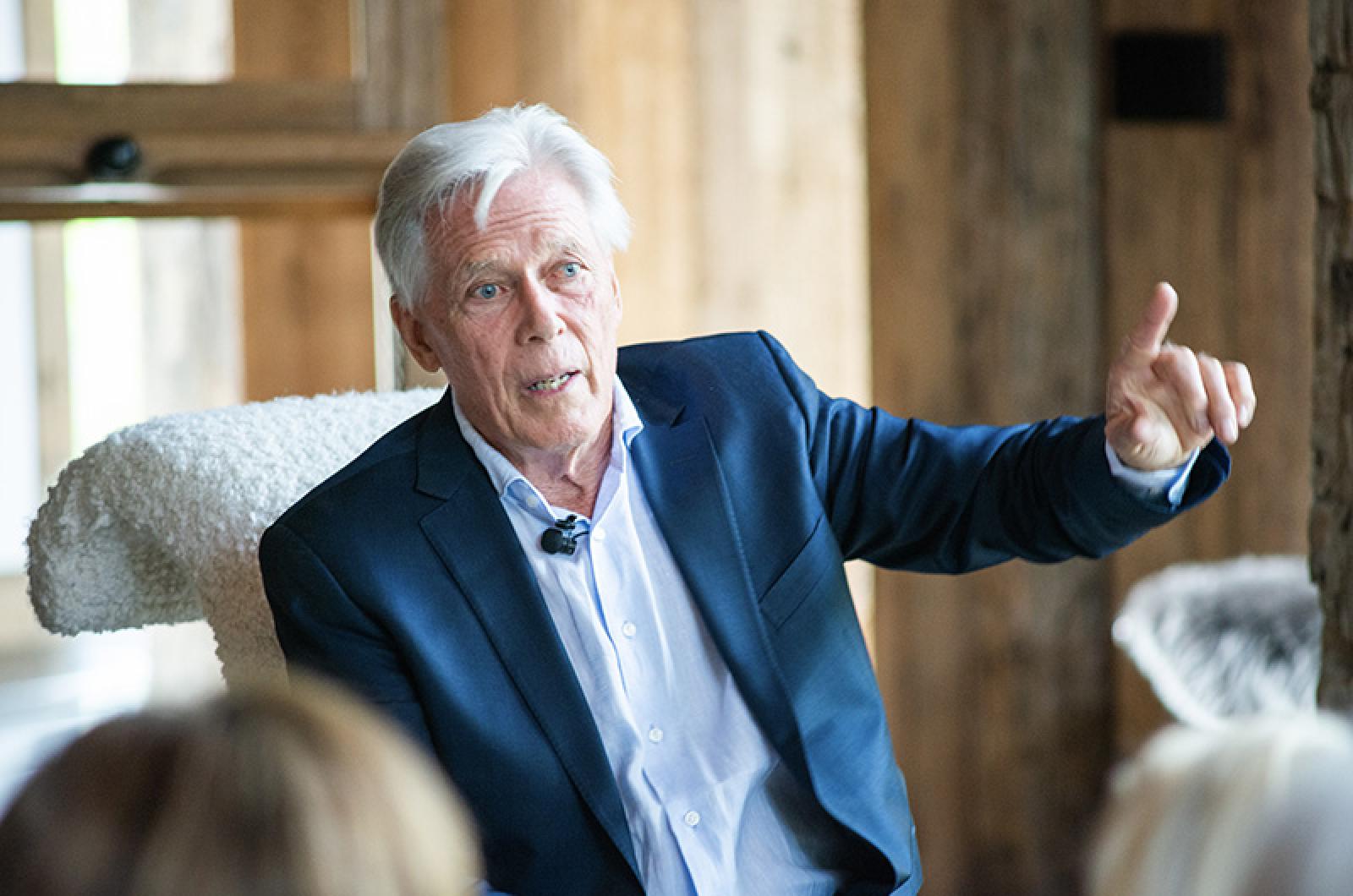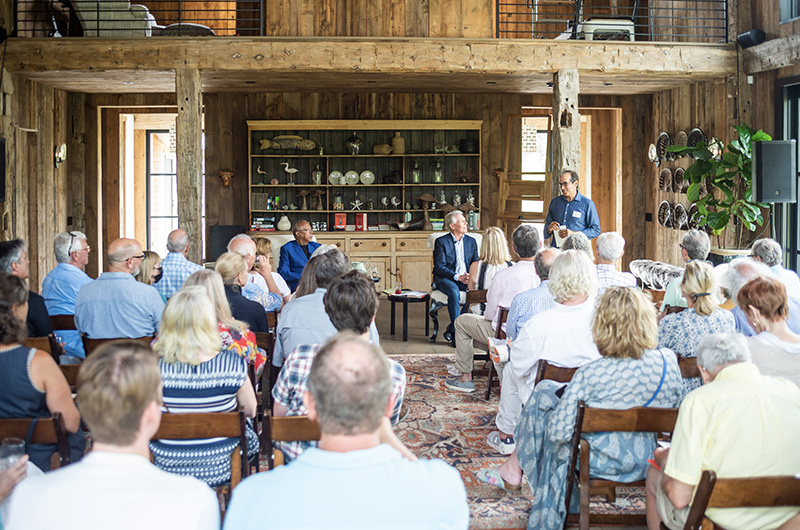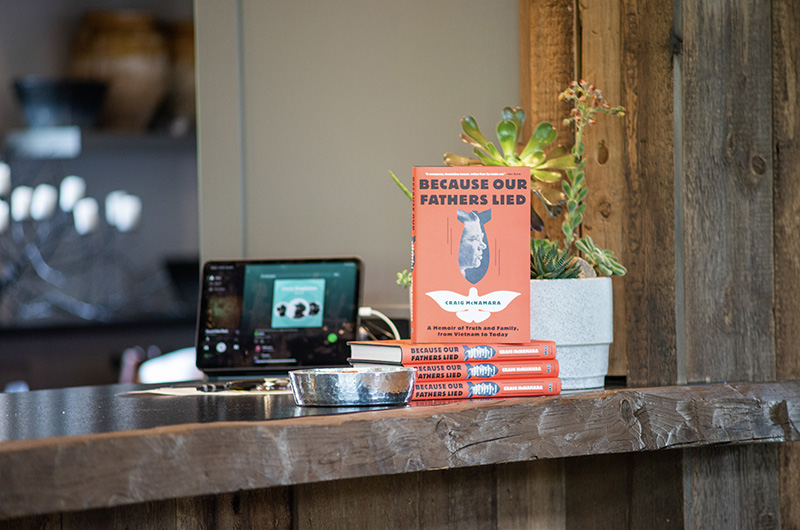In his debut memoir, Because Our Father Lied, California walnut farmer and seasonal Island resident Craig McNamara has a lot of questions for his old man. That old man is Robert McNamara, the late statesman, secretary of defense and so-called “architect of Vietnam.” His supposed knowledge of the war’s futility — which never led to a withdrawal of American forces under his command — has yielded decades of political and academic controversy.
On Thursday evening, the author was joined by Henry Louis Gates, Jr. for a discussion about the memoir, along with truth and statesmanship.
“Let’s start with this question: Why did you decide to write this book?” Mr. Gates asked.
Mr. McNamara said that he began work on the book by focusing on many unanswered questions as if to prompt a conversation he could never have with his father.
“He had a firewall I just couldn’t penetrate,” the author said, adding that people have always “referred to my father as a powerful world leader and a very powerful man.”
But for Craig McNamara, he has always been a father first.
The memoir begins as the story of a son who is openly rebellious as a teenager in the late 1960s. He protests his father’s war by hanging Viet Cong flags on his bedroom wall and joining rioters during his first year at Stanford. He decides the following summer to join two friends on a trip by motorcycle into South America, where he spends three years as an itinerant farmer and budding socialist. He eventually returns to the United States. In the late seventies he purchases a walnut farm — and he’s been there, as an organic farmer, ever since.
This bizarre odyssey makes for a thrilling read in its own right. But throughout the narrative looms the shadow of Robert McNamara and his silence surrounding the Vietnam War. For his son, this silence is the “lie” in the memoir’s title. At its heart, it is a failure to speak the truth even when given ample opportunity, he said.
On Thursday, Mr. Gates called the memoir “a very personal meditation on truth.”
About halfway through the book, the author writes: “It took years and years for me to understand how dysfunctional my family was with respect to speaking the truth. We didn’t know how to communicate.”
Reflecting on his father’s position of silent “loyalty” to the Kennedy and Johnson administrations, the author recalled thinking to himself, “Why can’t you be loyal to me, Dad? Or to yourself? What about the people who died? What about that loyalty?”
He said there were only four things his father would talk to him about — the vertical feet he’d skied at Snowmass; the weather; how much time it would take him to get back to D.C. from the Vineyard; and the weather.
The iciness of the older McNamara seems to run through the spine of the book, troubling and unresolved. Each unanswered question hovers like one more lingering discordant note. But the author’s questions are personal and often set between intimate observations. He details pack trips he took with his father across the Sierra Nevada mountains and early morning swims on South Beach (of which a photograph from about 1974 is included).
Mr. McNamara writes with a well of compassion and reflects late in the memoir on his attempts at forgiveness and resolution. In the book’s final chapter, he describes his friendship with the Vietnamese artist Danh Vo, who purchased at auction the leather cabinet chairs used by Robert McNamara and John F. Kennedy. Danh Vo deconstructed them, leaving, as Mr. McNamara writes, the “bare mahogany bones” and “the skin of living things now dead” open for all to see at the San Francisco Museum of Modern Art.
Moments like this, Mr. McNamara said, have allowed him to begin moving past his father’s own perfectly constructed image.
“I found that to be an incredible release,” he said.






Comments (2)
Comments
Comment policy »